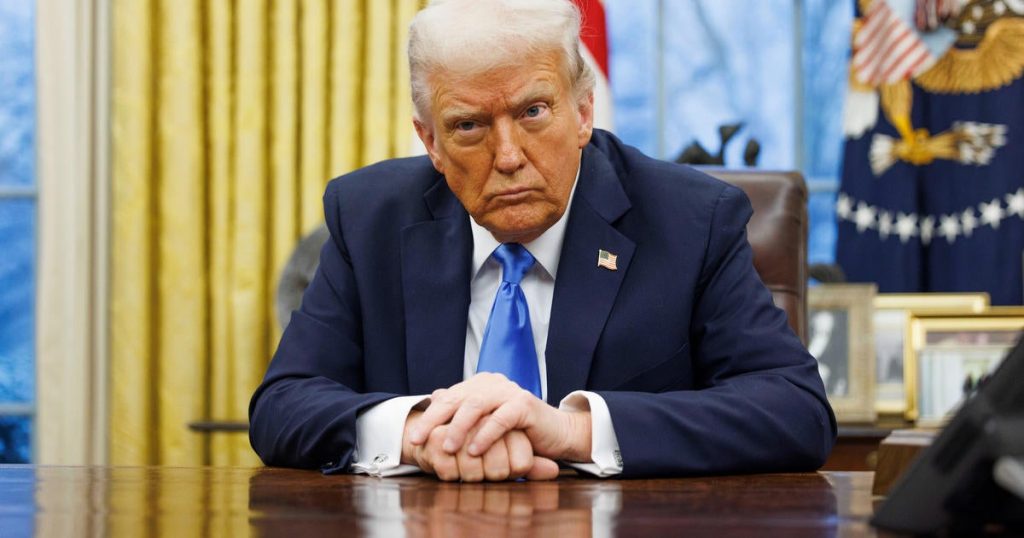Google Maps’ Controversial Rename of the Gulf of Mexico: A Battle Over Geography and free Press
The Google Maps Controversy: A Name Change with Far-Reaching Implications
In a move that has sparked widespread controversy and debate, Google Maps has reportedly changed the name of the Gulf of Mexico to the Gulf of America for users in the United States. This alteration is part of a broader effort by the Trump administration to rename the body of water, as outlined in a recent executive order signed by President Donald Trump. The decision has not only drawn criticism from environmentalists and geopolitical experts but has also raised concerns about the accuracy of digital platforms in representing global geography. The move appears to be part of a larger trend of political influence over public information, with significant implications for both domestic and international audiences.
The Trump Administration’s Executive Order and Its Implications
President Trump’s executive order renaming the Gulf of Mexico to the Gulf of America has been met with a mix of criticism and confusion. While the administration has framed the change as a patriotic gesture, critics argue that it disregards the established history and international recognition of the Gulf of Mexico, a name that has been used for centuries. The executive order also reverted the name of North America’s tallest peak in Alaska, Denali, back to Mount McKinley, a decision that has been met with resistance from local and indigenous communities. These changes have been seen by many as an overreach of executive power, with little consideration for the broader cultural and geopolitical impact.
The Associated Press Pushes Back Against Censorship
The Associated Press (AP) has found itself at the center of a First Amendment dispute following the Trump administration’s demands to alter its reporting on the Gulf of Mexico’s name change. According to Julie Pace, the AP’s executive editor, the White House insisted that the news organization update its style guide to reflect the new name, Gulf of America, instead of the traditional Gulf of Mexico. When the AP refused to comply, a reporter from the organization was barred from attending a high-profile event in the Oval Office, where President Trump was signing the executive order. Pace called the move "alarming," stating that the administration’s actions not only violate the First Amendment but also undermine the public’s access to independent news.
The AP’s Style Guide and the Importance of Global Consistency
At the heart of the dispute is the AP’s commitment to maintaining a consistent and recognizable style guide for its global audience. The AP’s guidance, published on January 23, two days after Trump’s executive order, emphasizes that the name change applies only within the United States and does not affect international recognition. As a global news agency, the AP argues that it is essential to use place names that are universally recognized to avoid confusion and maintain credibility. The guide also notes that the renaming of Denali to Mount McKinley will be adhered to in AP reporting, despite objections from Alaskan residents who prefer the name Denali, which holds cultural significance for indigenous communities.
The Broader Implications of Geopolitical Name Changes
The controversy over the Gulf of Mexico’s name change highlights a larger debate about the role of digital platforms in shaping public perception and the importance of maintaining accuracy in geographic representations. Google Maps, as one of the most widely used navigation and mapping tools in the world, holds significant influence over how people view and interact with geography. By altering the name of the Gulf of Mexico for U.S. users, the platform is effectively creating a fragmented view of the world, where names and boundaries may vary depending on the user’s location. This raises questions about the ethical responsibilities of tech companies in presenting accurate and consistent information, particularly in an era where misinformation is widespread.
Public Reaction and the Ongoing Debate
The public reaction to the name change has been mixed, with some supporters of the Trump administration hailing the move as a celebration of American heritage. However, critics have been vocal in their opposition, arguing that the change is unnecessary and divisive. Environmental groups have also weighed in, pointing out that the Gulf of Mexico is a critical ecosystem that transcends national boundaries, and renaming it for political purposes undermines efforts to protect it. The debate has sparked a broader conversation about the importance of preserving cultural and geographic integrity in the face of political agendas, as well as the role of a free press in holding power to account. As this controversy continues to unfold, it remains to be seen how Google Maps and other digital platforms will navigate the complex interplay between politics, geography, and free expression.












